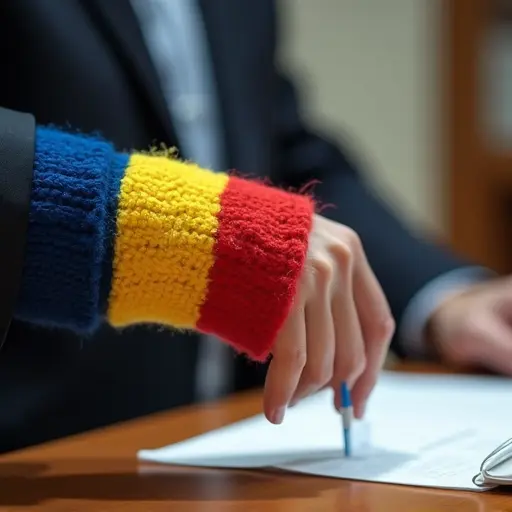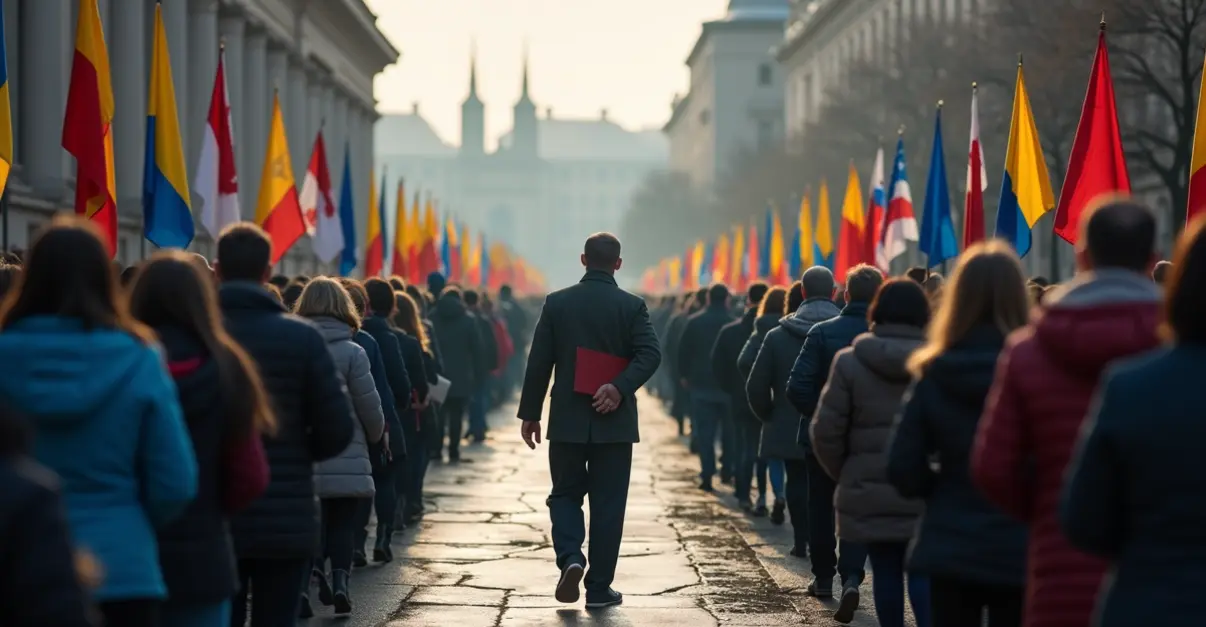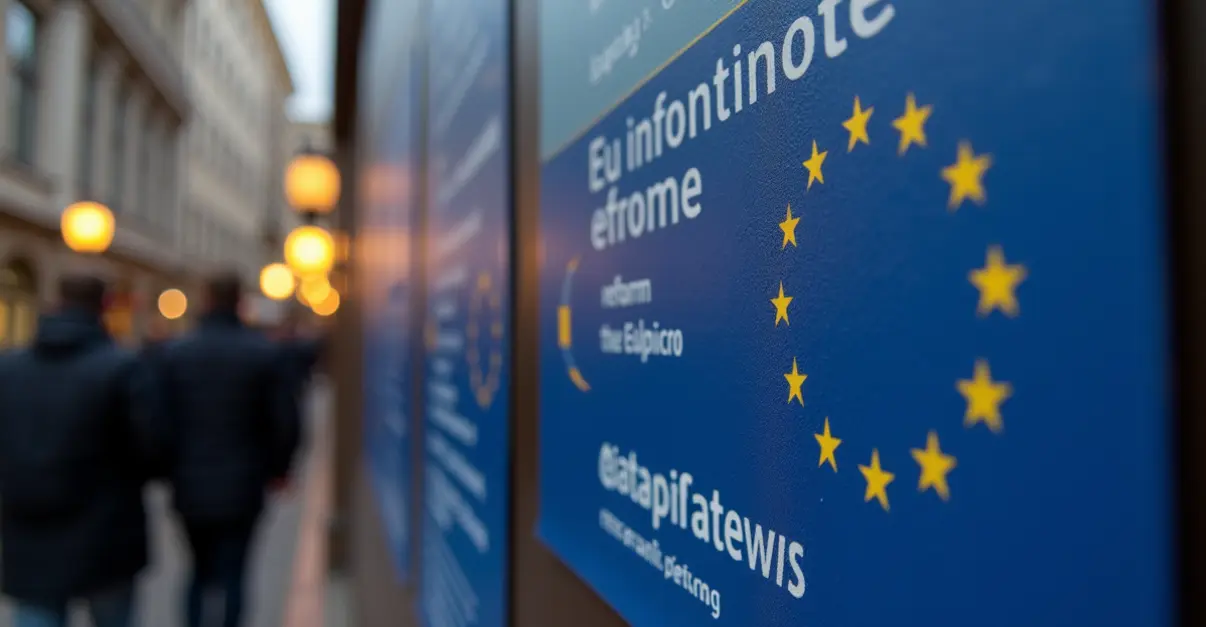Moldova's pro-EU ruling party secured parliamentary majority despite extensive Russian interference, reinforcing European integration path. Election marked by cyberattacks and disinformation but saw highest-ever turnout of 52%.

Historic Election Outcome Strengthens Moldova's European Path
Moldova's ruling pro-European Party of Action and Solidarity (PAS) has secured a decisive parliamentary majority in Sunday's elections, delivering a powerful rebuke to Russian interference efforts and reinforcing the country's commitment to European integration. With over 50% of the vote, President Maia Sandu's party maintained control of the 101-seat parliament against the pro-Russian Patriotic Bloc's 24%.
The election was marked by unprecedented Russian meddling, including cyberattacks, false bomb threats at polling stations abroad, and extensive disinformation campaigns. 'Despite Russia's massive efforts to spread disinformation and buy votes, no force can stop a people committed to freedom,' stated EU High Representative for Foreign Affairs Kaja Kallas.
European Leaders Celebrate Democratic Victory
European leaders responded with enthusiasm and relief to the election results. European Commission President Ursula von der Leyen declared: 'Moldova, you've done it again. No attempt to sow fear or division could break your resolve. You made your choice clear: Europe. Democracy. Freedom.' European Parliament President Roberta Metsola added: 'The future of Moldova is in Europe! On this historic step forward, the people of Moldova have chosen the path of democracy, hope and opportunities.'
Polish Prime Minister Donald Tusk praised Moldova's resilience, stating: 'Not only did you save democracy and kept the European course, but you have also stopped Russia in its attempts to take control over the whole region. A good lesson for us all.' Ukrainian President Volodymyr Zelenskyy emphasized that 'Russia failed to destabilise Moldova even after spending huge, huge resources to undermine it.'
Challenges Ahead for EU Integration
Despite the electoral victory, significant challenges remain for Moldova's EU accession ambitions. The country faces the complex task of implementing extensive reforms in rule of law, administration, agriculture, and anti-corruption. Analyst Andrei Curararu from WatchDog.md warned: 'Statistically speaking PAS has guaranteed a fragile majority. The Kremlin has bankrolled too big of an operation to stand down and could resort to protests, bribing PAS MPs and other tactics to disrupt forming a stable pro-European government.'
Dr Teona Lavrelashvili, research associate at Wilfried Martens Centre for European Studies, noted: 'The election result is a rare achievement in Moldova's politics and shows that voters are willing to back a reform-oriented course. At the same time, the scale of reforms needed remains daunting, and delays could easily slow progress.'
EU Membership Timeline and Obstacles
Moldova has set an ambitious target of joining the European Union by 2030, building on its candidate status granted in 2022 and the successful constitutional referendum in 2024 that embedded EU aspirations in the country's fundamental law. However, a major obstacle remains: Moldova's application is twinned with Ukraine's, and Hungary has consistently blocked progress on Ukraine's EU accession.
Romanian MEP Victor Negrescu expressed optimism: 'As Vice-President of the European Parliament responsible for the relation with the Republic of Moldova, I assure them of the full support of the European Parliament. By the end of 2028, accession negotiations with the European Union can be completed.'
The European Union is exploring workarounds to Hungary's veto, with discussions about allowing negotiation clusters to open by qualified majority rather than requiring unanimous approval. This would represent a significant shift in EU enlargement procedures.
Lessons in Countering Disinformation
Moldova's successful defense against Russian interference offers valuable lessons for other democracies. According to Dr Lavrelashvili, 'Principled politics is more resistant to foreign meddling than populist shortcuts. Moldova showed the importance of strategic communication by creating counter narratives and anticipating disinformation.' The country implemented measures including disrupting vote buying, acting against illicit Russian funding networks, and increasing accountability through stricter campaign finance rules.
Markéta Pekarová Adamová, speaker of the Czech parliament's lower house, considered the vote 'a victory for freedom, democracy and the European way. Vladimir Putin's world has clearly lost.' She expressed hope that Moldova's example would inspire other countries facing similar challenges.
The election outcome represents not just a political victory but a strategic success for European security architecture, demonstrating that determined democracies can withstand sophisticated foreign interference campaigns when supported by robust institutions and clear public commitment to European values.

 Nederlands
Nederlands
 English
English
 Deutsch
Deutsch
 Français
Français
 Español
Español
 Português
Português









